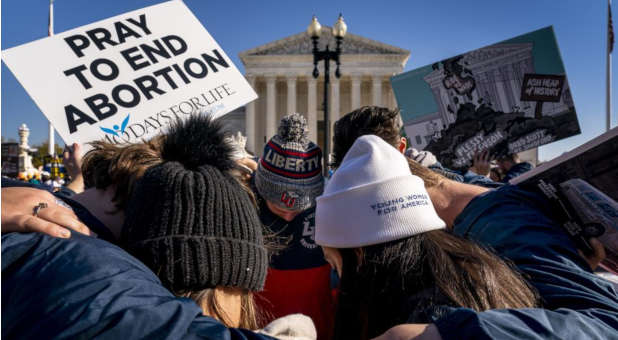Does Abortion Really Constitute Health Care?
 Health care for some should not involve paying for the death of others.
Health care for some should not involve paying for the death of others.
As America marks the first anniversary of the Dobbs v. Jackson ruling that overturned Roe v. Wade, many pro-abortion advocates still claim that “abortion is health care.” This erroneous phrase misses the mark when it comes to what health care truly is.
When doctors take their oath to “do no harm,” there is an inherent understanding that human life is sacred and therefore not something easily given up or taken away. To take an innocent life—for whatever reason—does not constitute health care. In fact, a paper published by the Family Research Council points out that abortion does not meet the criteria set by the American Medical Association as “the type of health care for which physicians should advocate.”
In other words, health insurance companies pay for something that actually puts two or more humans at risk. To argue otherwise could logically lead to a definition of pregnancy as illness and the in-utero baby or babies as causing the illness. Oddly enough, the majority of women with this supposed “illness” joyfully nurture the cause of this condition. Then again, insurance companies are increasingly paying for unnecessary and ill-advised procedures that put healthy people at risk.
Sadly, this approach is encouraged by state and federal governments. The U.S. Department of Health and Human Services calls access to abortion “reproductive health care,” even though that type of treatment is aimed at blocking reproduction.
How are pro-life Americans able to escape the health insurance trap?
Health care sharing ministries are an excellent choice for faith-based families who don’t want their money to facilitate abortion on any level. Holders of health insurance policies have no say in how the money from their premiums is spent on the health care of others, even if it’s against their beliefs. If you have insurance through a state-run insurance exchange, for example, you may well be helping to pay for abortions depending on the state you’re in. Several states also require private health insurance policies to cover abortions.
But, as the Healthcare Sharing Accreditation Board explains, health care sharing ministries are not health insurance. Rather, they are nonprofit organizations that “assist their members in managing health financing needs” apart from insurance. Health care burdens are shared by fellow members. However, those health care burdens don’t include deadly procedures like abortion.
Such procedures seem to be gaining support among Americans, according to a recent Gallup poll, with a record-high 69% saying abortion “should generally be legal in the first three months of pregnancy,” up from 67% in May 2022. Also concerning is growing support for access to the abortion pills mifepristone and misoprostol, despite the dangers of the self-managed, chemical abortion procedure.
Despite the Dobbs decision, though, as events have shown over the past year, the pro-life effort is still badly needed. Several states have passed extreme abortion laws, in some cases endangering babies’ lives up to the moment of birth. But even in states with highly restrictive abortion laws or bans, young mothers will find themselves in difficult situations and need the support of individuals and churches.
Perhaps the question that politicians, lawyers and doctors should be asking is not if abortion is in fact health care, but rather how to provide actual care to the mothers, fathers and innocent babies caught in this system. Many church communities across the country have stepped up and provided loving, compassionate, holistic care for women and babies in need. Care Net reports 1,200 affiliated women’s care facilities in the U.S.
The scourge of abortion remains with us, though, calling Christians to greater prayer and sacrifice as a way to support moms and babies in need.
And, happily, members of health care sharing ministries can rest assured that their money will not promote the taking of innocent human life. {eoa}
Michael Miller is editor of the Samaritan Ministries Christian Health Care Newsletter.




























































